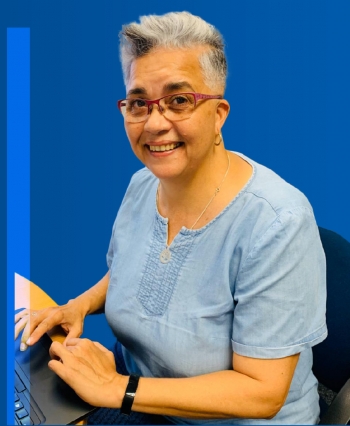Editor's note
by guest editor, Professor Heidi van Rooyen, Group Executive of the HSRC’s Impact Centre
These past four months of living with COVID-19 have asked a great deal of us all. On multiple levels. On the work front and in our personal lives. Given our mandate to conduct social science and humanities research for the public good, the HSRC has responded well to this call. Through engaged and collaborative academic, non-governmental and private partnerships, we have conducted several large-scale surveys, alongside more in-depth qualitative enquiries that explored the social and behavioural impacts of this public health pandemic on South African communities. This work has been presented to the COVID-19 National Command Council on several occasions and has been useful in shaping government guidance and interventions regarding the pandemic.
In commenting on the findings emerging from this work, President Cyril Ramaphosa noted that the HSRC’s research shows the human side of the pandemic. It was those words that inspired this current edition of the HSRC Review. Our aim is to give voice to the human face of this epidemic. In these 18 articles, we explore seven themes, including an analysis of the impact on psychological health and wellbeing, the impact on the economy and considering communication about the pandemic in the media and through science communication.
COVID-19 is an unprecedented health, human and social crisis. We share work that documents people at the hard edges of this crisis; those often marginalised in South African society such as the homeless, migrants, those in townships and dense inner cities, and the disabled. We document how disrupted learning deepens existing disparities between rich and poor children, and we learn through innovative photovoice work what parents, teachers and learners think about the reopening of schools.
All around us every day are signs of the enormous hardship and suffering being wrought by the coronavirus. But, if you pay attention, in the midst of all that you see glimmers of hope. We share that work too. You will hear how this moment affords opportunities to rethink cultural and traditional meanings of home and to imagine how we could build new infrastructures for water and sanitation, and for change. We show that South Africans are willing to build compacts of trust with government, and that communities are spurred into action to build networks that feed and support, and find new ways to do religion and culture.
We invite you to engage with these articles in a slightly different way. Like me, you will no doubt open this in the middle of several other tasks, quickly scanning through or reading it. In emphasising the human side of the pandemic, we have showcased work and complemented it with narratives and visuals that bring you closer to the lived realities of COVID-19. Allow yourself to slow down; read one or two of these, don’t rush through all 18 in one go. In this way, we give ourselves a moment to be touched by the plight or situation of others. We become fellow humans living in a time of COVID-19.

